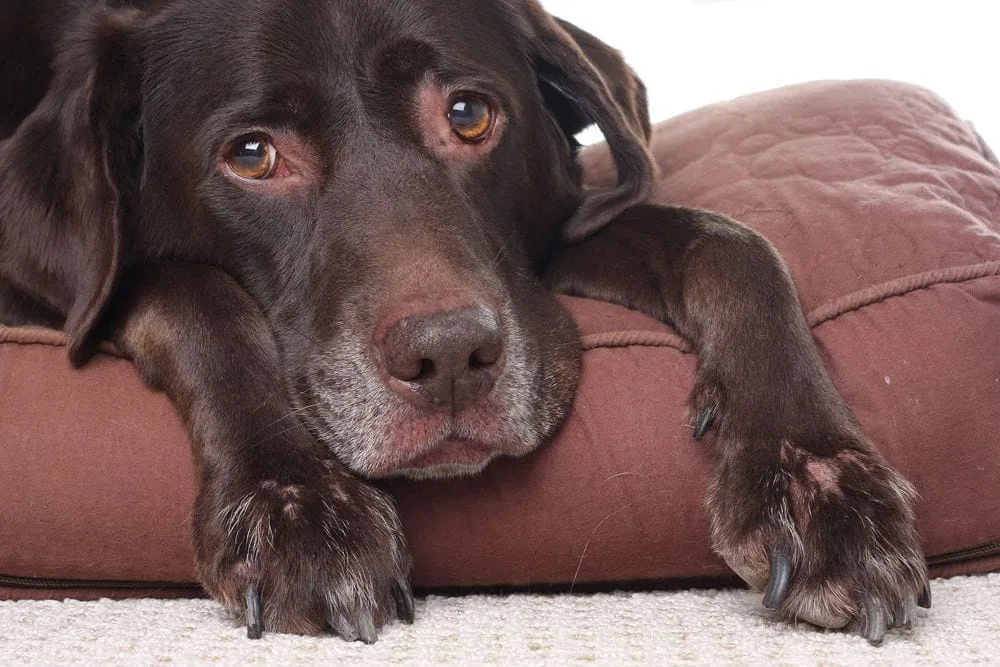If Your Canine Companion Has Hip Dysplasia, Schedule an Appointment with Our Dog Orthopedic Surgeon in Omaha
At Sirius Veterinary Orthopedic Center, our staff is proud to be leaders in veterinary surgery in Omaha, working in a state-of-the-art facility like no other in our area. Orthopedic veterinarian Dr. Chris Horstman and his team provide their animal patients with customized treatment, advanced clinical skills, and state-of-the-art technology and equipment to help them find relief from a variety of health conditions.

Hip dysplasia is one of the most common conditions the Sirius Vet staff evaluates and treats at our clinic. To learn more, read on.
What Is Hip Dysplasia?
Hip dysplasia is a condition that is hallmarked by abnormal growth and development of one, or both, of your dog's hip joints. Classified as a ball and socket joint (much as it is in humans), the canine hip is a highly mobile yet stable joint, and as such must have proper alignment of the approximating bones and surrounding capsule, ligaments, and muscles in order to function properly.
If a dog has hip dysplasia, the growth of its hip from puppyhood onward does not occur normally. This can cause the hip to become even more mobile than it should be. Over time, especially as the dog grows, this excessive hip laxity can lead to degenerative joint disease or osteoarthritis.
Hip dysplasia is believed to occur due to a combination of genetics and diet. Certain breeds of dogs are more at risk for developing hip dysplasia, particularly large breed dogs like German shepherds, Saint Bernards, Golden retrievers, Old English sheepdogs, and Great Pyrenees. If you have a large breed dog, it's extremely important that you help keep your animal at a lean weight to reduce excessive pressure on the joints (of course, any dog should have an ideal weight, as canine obesity can also lead to other health problems, too).
Signs & Symptoms of Hip Dysplasia in Dogs
Hip dysplasia can lead to instability and pain in your dog's hip joints. This may look to you as if your dog has a hard time walking and moving. For instance, it might have a hard time getting up from a sitting or lying position, and may not want to go up or down stairs. Puppies and dogs with more advanced hip dysplasia may also have an obvious limp, and may also have muscle wasting around the affected limb.
In mild cases of hip dysplasia, dogs may develop the condition as a puppy but show no clinical signs until they are older. This means that even if your dog appears to be moving and functioning fine, it still could have dysplasia and may be at risk for joint problems in the future if the underlying condition is left untreated.
How Our Orthopedic Veterinarian Team Can Help Manage Your Dog's Hip Dysplasia
Hip dysplasia can is typically diagnosed via a physical examination, patient history, and X-ray imaging. Our Omaha orthopedic veterinarian team can provide and/or confirm a diagnosis in your dog. Once the presence of hip dysplasia has been confirmed, we'll work with you to determine the most appropriate course of action given your pet's needs.
It's usually a good idea to see if conservative management can help improve your pet's symptoms first. This may include nutritional supplements that support bone and joint health, joint injections, weight management, physical therapy, and moderate exercise. Some pet owners may choose to explore alternative medicine techniques, as well.
If your pet's pain and symptoms do not improve with conservative management, we may be able to help by providing surgery to improve the stability and alignment of your dog's hip joints. Such surgical techniques may include:
- Total hip replacement (THR) Offered for patients 12 months and older
- Femoral head ostectomy (FHO)
- Triple pelvic osteotomy (TPO)
- Juvenile pubic symphysiodesis (JPS)
Wondering If Your Dog May Have Hip Dysplasia? Schedule a Consult with Our Orthopedic Veterinarian Near Omaha Today
If your dog is showing signs or symptoms of hip dysplasia, then schedule a consultation with our orthopedic veterinarian near Omaha today. The Sirius Vet team can help you make the best, informed decision about how to help your canine companion manage with this common condition. To schedule your appointment today or to learn more about our services, call Sirius Veterinary Orthopedic Center today at (402) 934-1332.

